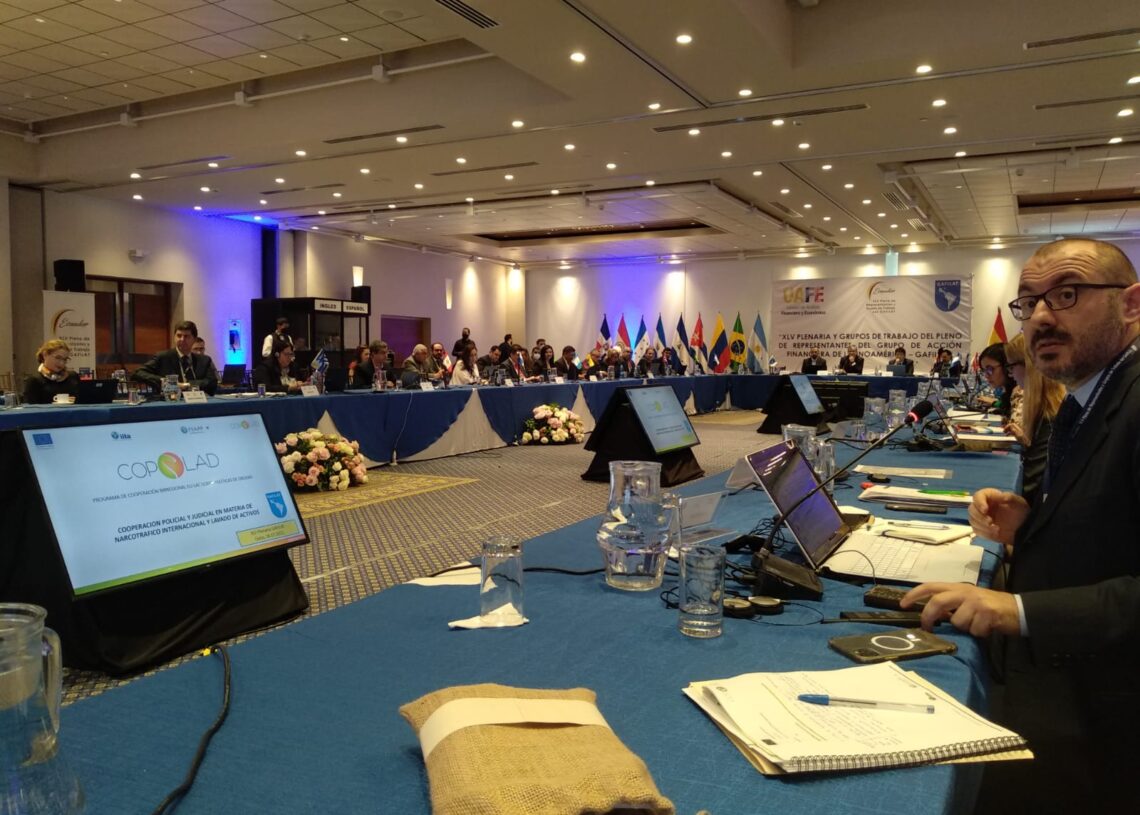The objective of this group is to strengthen the exchange of information between Financial Investigation Units in order to reinforce strategies that have an impact on the finances of drug traffickers.
On 26 July, in the framework of the XLV Plenary Session of GAFILAT (Financial Action Task Force of Latin America) taking place in Quito, Ecuador, from 25 to 29 July, the Working Group on Financial and Asset Investigation of Drug Trafficking, promoted by the European Union’s COPOLAD III Programme, was officially launched.
The fight against money laundering as a crime related to drug trafficking is also one of the lines of work of the COPOLAD III programme led by the Italian organisation IILA, which is responsible for this issue in the Programme.
This working group will focus on new technologies in the fight against illicit money laundering, suspicious transactions, analysis techniques and the use of open sources. The objective of this group is to strengthen the exchange of information between Financial Investigation Units at regional and bi-regional level, in order to reinforce the strategies that impact against the finances and assets of criminal organisations as the most effective way to reduce their power and their capacity to generate economic, political and social influence.
On behalf of COPOLAD III, Lieutenant Colonel Alessandro Loddo, from the Central Directorate of the Anti-Drug Services (Italian Ministry of the Interior) and the programme’s main expert on the subject, participated in the presentation of the Working Group. Other participants were José Rodrigo Sirvent Bravo Ahuja, from the Financial Investigation Unit of Mexico and Ramón Armas Castillo, from the Financial and Economic Analysis Unit of Ecuador, as representatives of the coordinating countries of the Working Group on financial and asset investigation.
So far, nine countries have joined the working group: the two coordinating countries plus Argentina, Chile, Costa Rica, El Salvador, Honduras, Peru and Uruguay.
GAFILAT is a regionally based intergovernmental organisation that brings together 18 countries from South America, Central America and North America and was created to prevent and combat money laundering through a commitment to the continuous improvement of national policies and the deepening of the various cooperation mechanisms between member countries.






